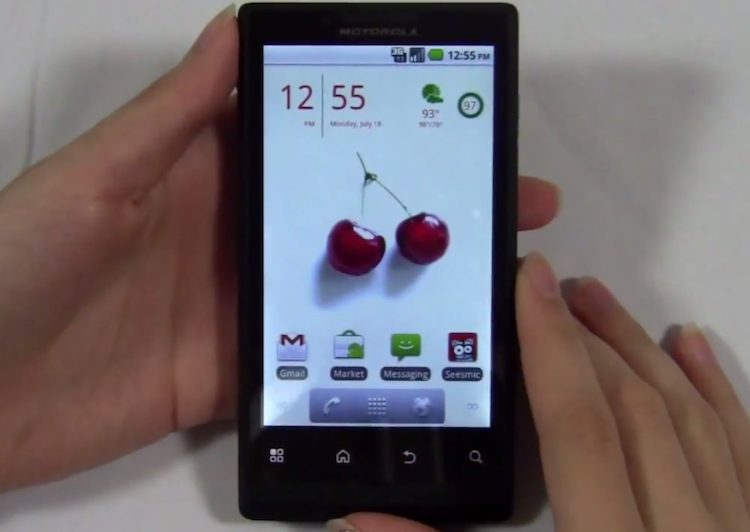
Owning a smartphone isn't cheap. The vast majority of smartphone users in the US are postpaid subscribers with one of the four major wireless providers: Verizon Wireless, AT&T, T-Mobile or Sprint. To avoid paying full price for phones, which can range from $400 to $800, such customers sign an agreement – usually for a length of two years. In doing so, they can bag a $600 phone for $300 or much less with a two-year agreement. This is how things have worked for some time now.
But phones are rapidly becoming more advanced and more capable with every passing moment, and they're not getting any cheaper. Thus, in order to avoid going in the hole on every physical unit sold and to continue offering affordable subsidized devices to customers (and to fund the expansion of new and existing networks), carriers must raise prices on services and additional features. They also aim to ensure contracted customers stick to their agreements.
As owning a cell phone becomes increasingly expensive, though, wireless customers are beginning to look for means of saving a few pennies along the way. The only real way to do this as a postpaid customer is to cut back and limit what you use. In other words, saving money with a postpaid carrier means either dropping your data and calling plans to the bare minimum or avoiding the smartphone route altogether.
Smartphones, however, are important tools. A device which was once considered a novelty is now a staple in society and vital for day to day tasks, like emailing, staying in touch with friends and reading (or reporting) news. They're far too important and we've come to rely on them too much for most people to completely walk away from them in favor of some spare change.
As a result, prepaid carriers have been picking up the slack over the last few years. Providers like Boost Mobile, Straight Talk and Virgin Mobile have come forward with extremely competitively priced plans and phones. For example, Virgin Mobile offers a handful of Android smartphones (sans contract, of course) under $300 with unlimited data and text for $35, $45 or $55 per month. When you compare this to what you might pay with a postpaid provider, the savings are substantial.
That said, you can't currently have the best of both worlds. While you do get to save a nice chunk of change every month, you likely will not have access to the fastest speeds available, nor will you have a wide selection of devices. To be more specific, many of the prepaid smartphones are hand-me-downs from their parent providers. Or they're just cheap, low-end devices that straddle the line between feature phone and smartphone.
One of the nicest prepaid phones to date is the Motorola Triumph on Virgin. It's easily one of the most respectably priced and spec'd prepaid devices around. However, it doesn't hold a candle to most of the mid-range and high-end offerings from major postpaid carriers. I would much rather pay $500 or $600 for a high-end smartphone like the HTC Rezound on Virgin over buying a Triumph for $299.99.
Having a secondary (or backup) line on T-Mobile (postpaid) – while it could be worse – isn't exactly the cheapest option. So I've considered taking the plunge and paying for a prepaid line as my secondary. That $35 per month plan from Virgin Mobile is one seriously sweet deal. But I just cannot force myself to use any of the current prepaid devices available. I have been spoiled by high-end after high-end Android phone, and just cannot force myself to buy something like the Samsung Galaxy Prevail or Motorola Triumph.
Doesn't it make you wonder, though, if US prepaid providers will ever have smartphone offerings for us die-hards out there? Will prepaid providers ever get dibs on a high-end smartphone, like a Nexus from Google? (That is, after all, what Google's original plan was. Buy the phone then choose your carrier, like it is essentially everywhere else in the world.) Not everyone would be willing to fork out half a grand for a phone on a prepaid service. But with time, it could really catch on, especially if people start to realize just how much money they could save each month on cell phone bills. Over the length of a contract, the difference in the prices of bills would outweigh the initial cost of the device.
It's worth noting that T-Mobile does offer Monthly4G plans with relatively competitive pricing. And any capable T-Mobile phone is eligible. So this is certainly an option for anyone looking to go no-contract with a high-end smartphone. But being a postpaid and prepaid provider, they're sort of an exception to the rule. I'm more interested in other providers like Virgin, Straight Talk and Boost getting current, high-end devices in their lineup. Will it ever happen? Will it matter if it does?
Have you considered taking the prepaid plunge? Would you pay retail price for a high-end smartphone to use on a prepaid carrier? Would you pay an ETF and switch to prepaid if, say, Virgin Mobile got a phone comparable to the Galaxy Nexus or HTC Rezound?